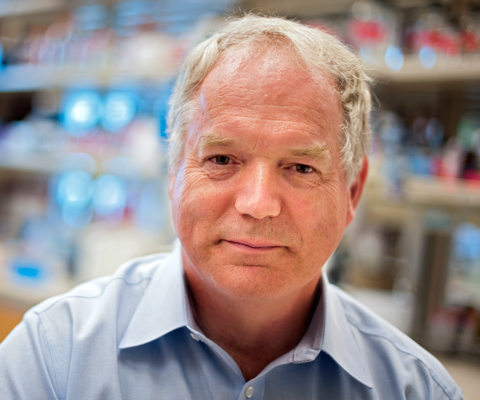Michael Houghton

University of Alberta researcher wins Nobel prize for Hep C discovery, now working on vaccines
It was the middle of the night on Oct. 5 when University of Alberta professor Dr. Michael Houghton learned he and his collaborators were the Nobel Prize winners in Physiology or Medicine for 2020. Dr. Houghton won the Nobel along with scientists Harvey Alter and Charlie Rice for their significant contribution to the fight against blood-borne hepatitis, a major global health problem that causes cirrhosis and liver cancer in people around the world.
Dr. Houghton said he tried to go back to sleep after the 3 a.m. call from a colleague but failed. “In the end I gave up,” he said in an interview with Adam Smith of Nobelprize.org. “And then… [I] got on email and there’s hundreds and hundreds of emails, which is all very nice of course.”
The three scientists discovered the hepatitis C virus (HCV), which causes 400,000 global deaths a year, in 1989.
After their discovery, protecting the blood supply from transmission was job one. The scientists quickly developed a blood test and by 1992 the virus was virtually eliminated from the blood inventory in the developed world.
Their attention then turned to therapeutics. “It took…the whole field and the pharmaceutical industry working for more than 20 years. But eventually, we’ve got these wonderful drugs now that can cure nearly everybody quite quickly and safely.”
Still, HCV remains a global epidemic. “So…the way eventually you have to control an epidemic like this is with a vaccine,” he said. “After many years of work, I think our field feels that it is now feasible…at the University of Alberta I’ve been working on an improved version that we think has a good chance of success, or at least being partially effective.”
Dr. Houghton was recruited to the University of Alberta in 2010 as the Canada Excellence Research Chair in Virology in the Li Ka Shing Institute of Virology. Two years later, he and his team developed a vaccine for the virus known to cause cirrhosis, end-stage liver disease and liver cancer. The vaccine is now in late-stage testing.
He is also leading an effort to produce a vaccine for COVID-19.
Dr. Houghton said he became interested in microbiology when was 17, “having read about Louis Pasteur’s life and his work, so he was my inspiration.” In terms of what drove his work, especially during years of frustration, he said it wasn’t the promise of awards or accolades. “It’s nice, but what counts for me more is that we’ve been able to prevent millions of hepatitis C infections that otherwise would have occurred through the blood supply. Prizes are very pleasant, but they’re only prizes. I’m much more happy when we can actually intervene with patients and prevent people from getting infected or provide a cure for them.”
